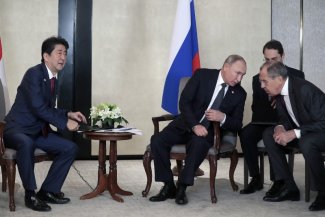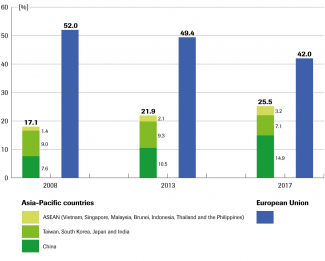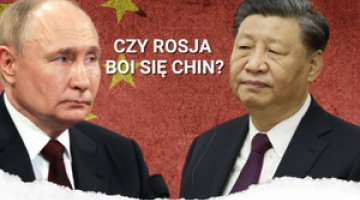Russia’s ‘turn to the East’?

Last week, Russian leaders participated in a series of multilateral meetings at the highest level in the Asia-Pacific region. During a three-day official visit to Singapore (13-15 November), President Vladimir Putin participated at the Russia-ASEAN summit (14 November), and then the East Asian Summit (15 November). Meanwhile Prime Minister Dmitri Medvedev took part in the annual summit of the APEC (Asia-Pacific Economic Cooperation) forum on 17-18 November. At the Russia-ASEAN summit two declarations were signed: raising Russia-ASEAN relations to the level of a strategic partnership, and cooperation in the field of secure usage of ICT. In Singapore, Putin also held a series of bilateral meetings with leaders of major Asian countries (China, Japan, India, South Korea, Indonesia and Thailand). He also laid the foundation stone for the construction of a cultural centre and a Russian Orthodox church.
Commentary
- The participation by Russian leaders in the multilateral meetings held by Asian leaders was primarily a political demonstration. It was intended to show the increasing involvement of Russia in Asian affairs, and convince Western partners (especially in the European Union) that Russia has attractive economic partners in Asia, and that a continuation of Western economic sanctions will only lead to the further reorientation of Russian economic ties from Europe towards Asia. However, the Russian power elite cannot count on preferential treatment in Asia. Significant in this context was the reaction by the Prime Minister of Singapore Lee Hsien Loong, to the behaviour of President Putin, who was late for a bilateral meeting scheduled for 13 November. Unlike Western leaders, who in such cases usually wait patiently for the Russian president to arrive, the Singaporean leader postponed the meeting to the next day.
- The share of Asian countries in Russia’s foreign trade did in fact rise between 2013 and 2017, from 21.9% to 25.5%, while the European Union’s share fell from 49.4% to 42%. The gradual increase in Asia’s share in the economic relations of the Russian Federation, however, was already noticeable before the West introduced sanctions against Russia. This trend already emerged during the economic crisis in 2008-9; in 2008, the share of Asian countries still amounted to 17.1%, and that of the EU 52%. The reorientation is mainly due to the increase in the Russian Federation’s trade with China, the share of which rose from 7.6% in 2008 to 10.5% in 2013, and 14.9% in 2017. At the same time, the share of ASEAN countries rose from 1.4% in 2008 to 2.1% in 2013, and 3.2% in 2017.
- The two Asian summits witnessed clashes between the US and China, which is a manifestation of the ongoing trade war between the two countries. At stake is the shape of the future system of international trade in the Asia-Pacific region, and perhaps even on a global scale. In this gameplay, as was indicated in the statements made by President Putin and Prime Minister Medvedev, Russia has adopted a decidedly anti-American stance, attributing all the blame for the present conflict to Washington, and positioning itself as a defender of the liberal international trade order.
- One concrete achievement for Russian diplomacy was the consent by the Prime Minister of Japan, Shinzo Abe, for Japan to adopt the ‘1956 declaration’ as a basis for talks on resolving the conflict around the Kuril Islands, as announced after his bilateral meeting with Putin on 14 November. According to this document, after the conclusion of its peace treaty with Japan, the Soviet Union undertook to restore to Japanese control just two of the four disputed Kuril Islands (the smaller of them, at that, representing only around 10% of the total disputed area). This declaration was first disavowed by Japan, and later by the Soviet Union. Until now Tokyo has made the signing of a peace treaty (and informally, significantly increasing Japanese economic cooperation with Russia) conditional on the return of all four islands. According to the Japanese press, Prime Minister Abe also promised (in line with Russia’s position) to rule out the stationing of US troops on the islands Japan would recover (according to its agreement of alliance with Japan, the US has the right to deploy its bases at any place on Japanese territory). The Russian side has responded to these principled concessions by Prime Minister Abe in a way that indicates its willingness to continue to drive a hard bargain in resolving the dispute. The Russian-Japanese negotiations on initiating joint economic activities on the disputed islands, which have been ongoing for two years, have reached a legal and procedural stalemate, so there are doubts as to whether the Japanese Prime Minister’s concessions will lead to any change of the current Russian position, which in practice consists in the continued refusal to transfer the islands back to Japan.
Changes in Russia's trading directions, 2008-17

Source: Federal Customs Service of the Russian Federation





